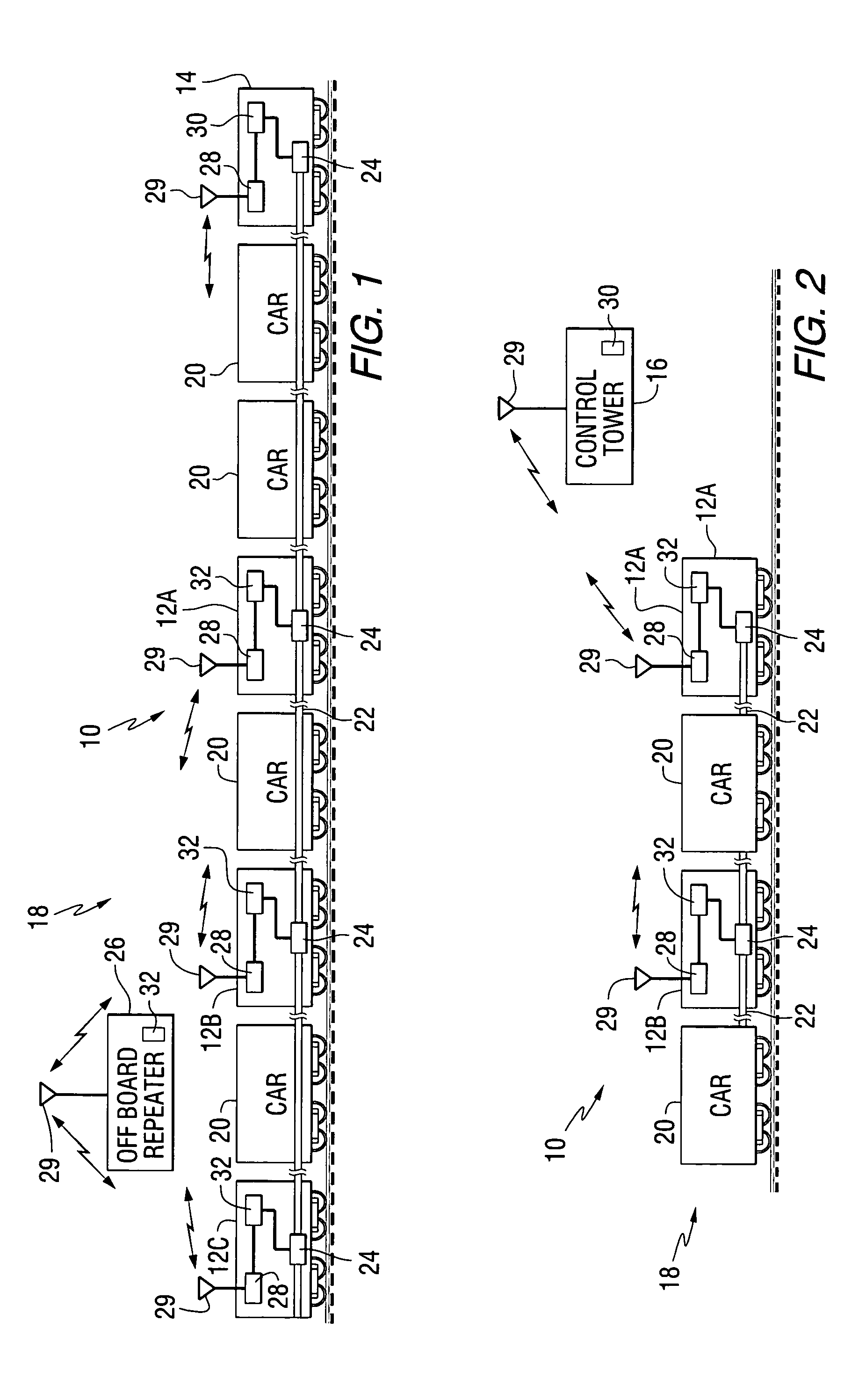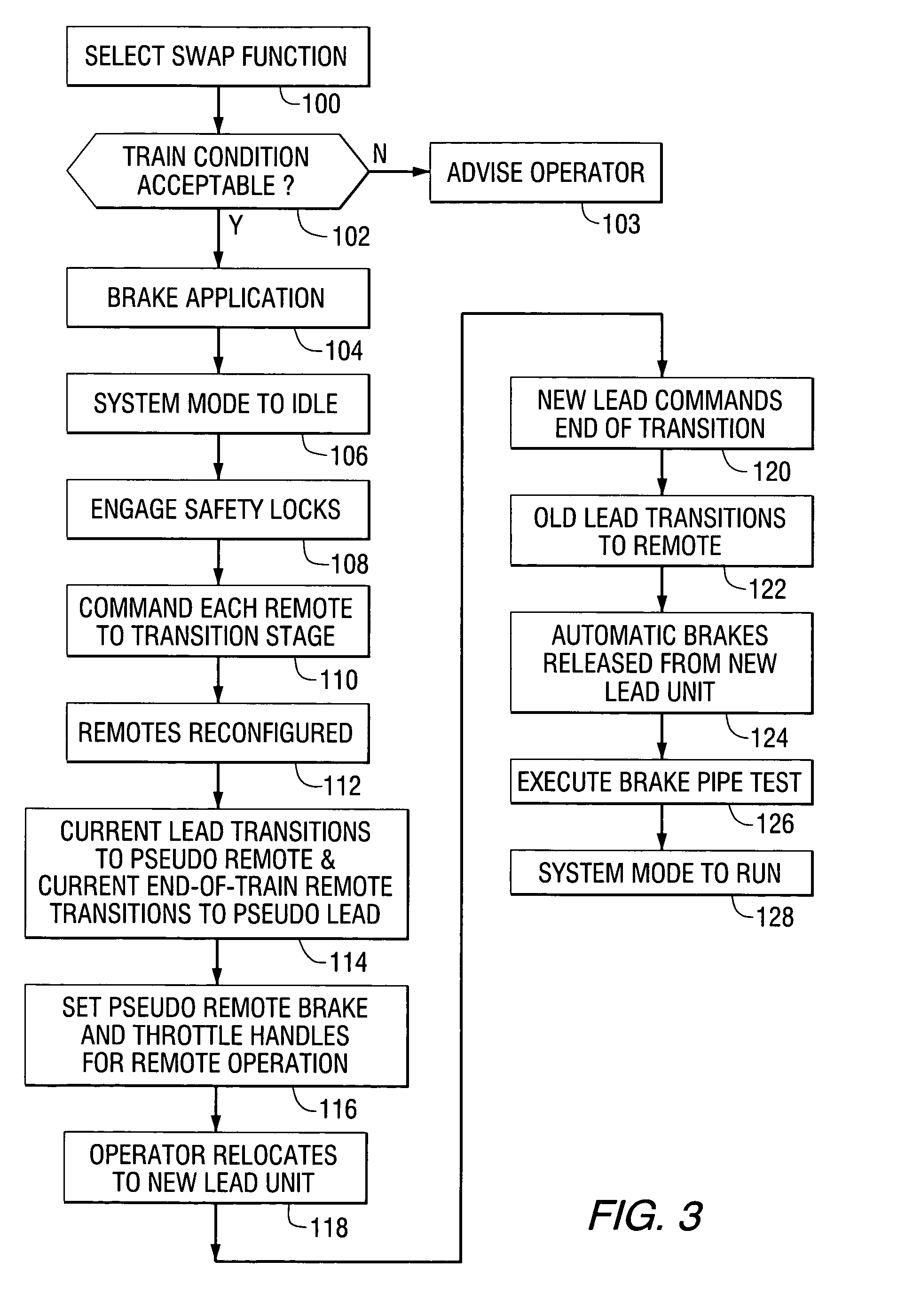Method and apparatus for swapping lead and remote locomotives in a distributed power railroad train
a technology of distributed power and locomotives, applied in process and machine control, instruments, navigation instruments, etc., can solve problems such as a 20 to 60-minute delay penalty, slowing brake applications at railcars distant from the lead unit, and inapplicable brake force uniformly
- Summary
- Abstract
- Description
- Claims
- Application Information
AI Technical Summary
Benefits of technology
Problems solved by technology
Method used
Image
Examples
Embodiment Construction
[0045] Before describing in detail the particular method and apparatus for swapping the lead and remote locomotives in a distributed power train in accordance with the present invention, it should be observed that the present invention resides primarily in a novel combination of hardware and software elements related to the locomotive swapping method and apparatus. Accordingly, so as not to obscure the disclosure with structural details that will be readily apparent to those skilled in the art having the benefit of the description herein, in the description that follows certain hardware and software elements have been described with lesser detail, while the drawings and the specification describe in greater detail other elements and steps pertinent to understanding the invention. The following embodiments are not intended to define limits as to the structure or use of the invention, but only to provide exemplary constructions. The embodiments are permissive rather than mandatory and...
PUM
 Login to View More
Login to View More Abstract
Description
Claims
Application Information
 Login to View More
Login to View More - R&D
- Intellectual Property
- Life Sciences
- Materials
- Tech Scout
- Unparalleled Data Quality
- Higher Quality Content
- 60% Fewer Hallucinations
Browse by: Latest US Patents, China's latest patents, Technical Efficacy Thesaurus, Application Domain, Technology Topic, Popular Technical Reports.
© 2025 PatSnap. All rights reserved.Legal|Privacy policy|Modern Slavery Act Transparency Statement|Sitemap|About US| Contact US: help@patsnap.com



